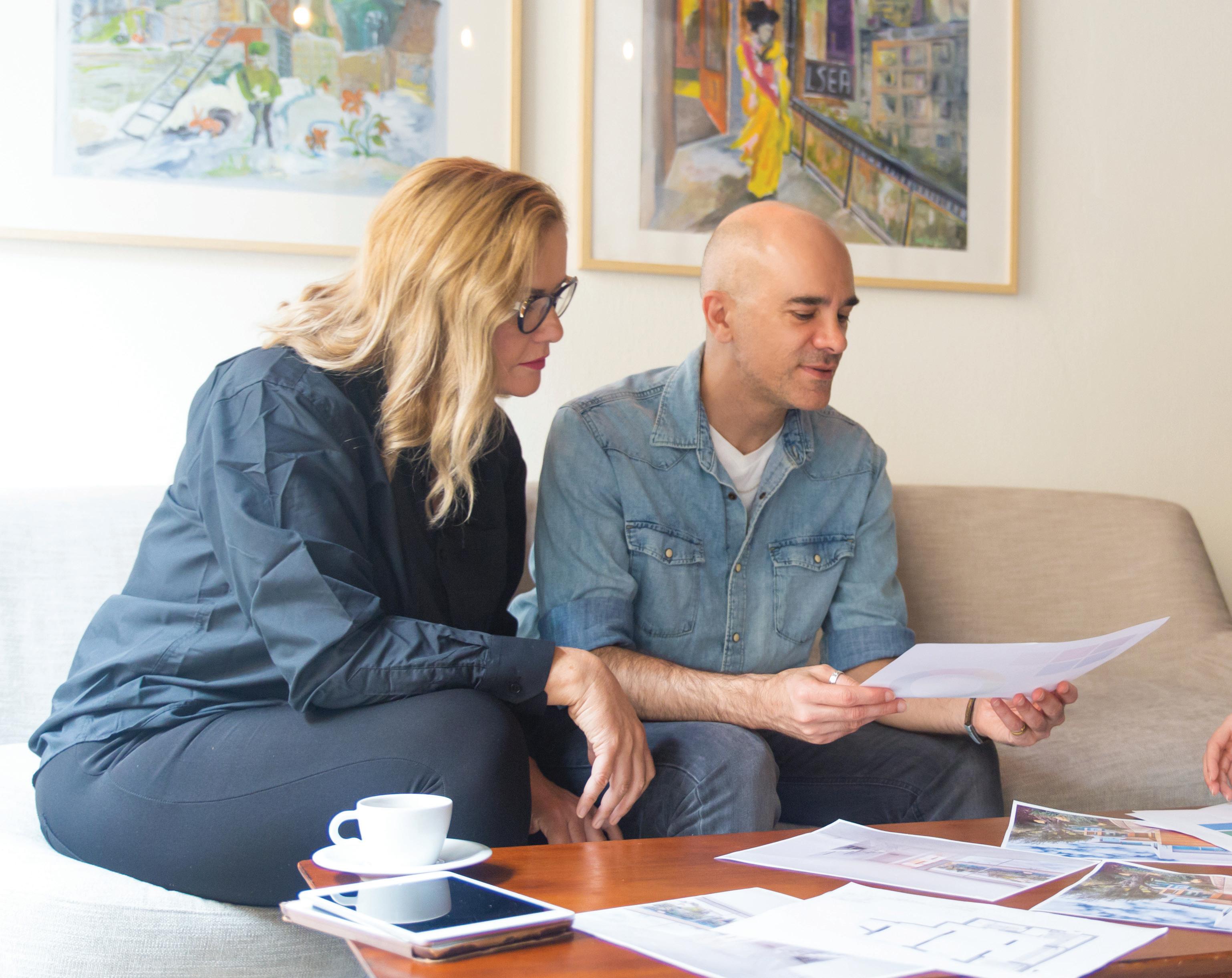

Seller’s Guide Long Island


The closing starts at the beginning, Let Elliman Guide the Way
It takes expertise to successfully navigate one of the world’s most exciting and competitive real estate markets. Backed by more than a century of institutional knowledge, our top-performing agents are here to listen to your needs, understand your vision and personally guide you through every step of your sales journey. With our reach, resources and reputation as Long Island’s #1 brokerage by sales volume*, Douglas Elliman works tirelessly to be your trusted partner in one of the most important financial decisions you will make.

Step One Partner with a Professional

The Agent Advantage
Your home is among your most precious personal assets. Deciding to sell it is the first step in a journey that is best undertaken with the guidance of a trusted real estate salesperson. A licensed agent has the knowledge, experience and professional network to package, promote and put your property in front of highly qualified buyers.
* SOURCE: ONEKEY (MLS)
The Elliman Advantage
As the #1 residential brokerage by sales volume on Long Island*, Douglas Elliman dominates the market. With a network of 6,600 agents in 115 offices across the country, each Elliman agent has an unrivaled scale, marketing resources and media reach to connect your property with buyers from around the world.


What to Ask Your Agent
Clearly communicate your expectations to your agent and ask questions to ensure you are on the same page.
What is your communication style?
Let your agent know how you would like to communicate throughout the sales process, including how frequently you will receive updates and whether you prefer phone calls, emails or print reports.
How do you advocate for your clients?
Look for an agent who is a skilled negotiator and who pushes for the best terms and conditions for you. Feel empowered to ask for examples of success stories or client testimonials.
What is your marketing plan?
Ask what strategies your agent will use (e.g., virtual/live open houses, 3D Tours, digital and print advertising, social media) to promote your property to the right audience.

Key Elements of Your Partnership
Exclusivity
An exclusive right-to-sell listing agreement specifies the selected agent that is responsible for listing, marketing, and selling your home for the duration of the agreement.
Marketing
The marketing plan typically highlights what marketing strategies (virtual/live open houses, 3D Tours, digital and print advertising, social media, etc.) will be implemented.

Signing a Listing Agreement with an Agent
It is common practice to sign an exclusive right-to-sell listing agreement that ensures only one agent or team has access to your listing. Think of them as the key holder to your home. Their job is to represent you in the sale while working with the brokerage community to find you the right buyer. Standard contracts run for a minimum of six months and typically highlight what access your agent will have and how much their services will cost.
Timing
Your agent will work with you to determine a schedule that best suits putting your home on the market.
Broker Fee
An agreed-upon percentage of the property’s sales price that is paid at the closing.

Step Two Price Your Property
The Secret to Pricing
A well-priced home is the difference between a successful sale and a costly setback. It is the fastest route to inspiring competitive offers with the best terms and the highest price. Your real estate agent will conduct a Comparative Market Analysis (CMA)—an evaluation of comparable properties—to determine a realistic price for your home.
Elliman’s Advice
Know Your Neighborhood
Your real estate agent will evaluate comparable homes in your neighborhood that have recently sold to make sure that yours is priced correctly.
Determine Accessibility
Proximity to transportation, restaurants, parks, and other amenities can make your property more desirable and typically increase its value.
Condition Makes a Difference
Upgrades and high-quality updates often raise your property’s sales price.
Size & Details
Square footage, layout and the number of bedrooms and bathrooms are important factors in determining a competitive sales price.
Assess the Market
Consider the state of the market when deciding whether it is a good time to sell. Analyze the sales of similar homes in your neighborhood over the past six months, and look specifically at days on market and list-to-sale price ratios.
Accurate Home Valuations
Online home estimators, often base your home’s worth on zip codes rather than comparable data. Your real estate agent will advise on the most accurate home price based on a combination of comparable properties and the above factors.
The Elliman Advantage
With our quarterly Market Reports, monthly Contracts Signed Reports and other sources of data, Elliman agents have access to proprietary insights about market dynamics and qualified buyers that enable them to optimally price and position your property.



Step Three Prepare Your Property


The Elliman Advantage
Our agents tap into a network of photographers, videographers, virtual tour, staging and other vendors to assess your space and ensure your property is ready for the spotlight.
Stage Right
In the world of real estate, looks sell. Embark on a mission to pack up, pare down and create an alluring, well-organized space that enables buyers to envision themselves in every room. A nominal investment in cosmetic improvements and mechanical repairs often results in an increased selling price and reduced time on market.
Elliman’s Advice
Scale Back & Organize
Eliminate clutter from every room. Designate bags for donation, trash and storage, and pack up personal items.
Deep Clean
Tidy your home from top to bottom and corner to corner. Prying eyes will always find the crumbs and the cobwebs.
Wash Windows
Clean glass, dust blinds and remove screens to maximize light and views.
Paint
Walls & Cabinets
Light-toned grays or beiges are neutral, soft and inviting.
Upgrade Lighting
A well-lit room expands and brightens up a space. New outlet covers and light switches are the ultimate finishing touch. Remove heavy window treatments to brighten your homes interior. Consider upgrading to LED lights.
Update Appliances
Make the kitchen look modern and new.
Refinish Wood Floors
Carpets and rugs should be professionally cleaned.
Organize Closets
If your closets appear to be bursting at the seams, potential buyers might assume they are too small.
Pre-Sale Home Inspection
Having a home inspection by a certified home inspector/engineer can help you identify issues that could be addressed prior to marketing your property. Fixing those issues could give prospective buyers the additional confidence when making an offer to purchase your property. The inspection report can also be a helpful aid when filling out the NYS Property Condition Disclosure Statement.

Step Four Putting Your Property on the Market
Launching Your Listing
When it’s time for your property to go on the market, it’s important that you prepare yourself for a range of possible pathways to get to a signed contract. Whether your listing instantly receives multiple competitive bids or takes time to get traction after multiple showings, a trusted agent can be a powerful ally and source of guidance at critical moments of the sales process.


Promoting Your Property
In addition to ensuring your listing appears in publications and on websites where buyers are searching, your agent can employ a number of tactics to help your property stand out, from creative marketing on social media to leveraging a network of professional contacts to reach qualified buyers. Your agent will market your listing to the entire Douglas Elliman community of more than 6,600 agents, including many that work exclusively with buyers.
Evaluating Bids
Once interested buyers submit their bids and demonstrate their financial qualifications to purchase your property, your agent will assist you in evaluating which offers are worth considering, countering, or rejecting altogether. Remember: The terms of a deal are very important to consider. A higher bid isn’t necessarily the best one.
The Art of Negotiation
Even when you agree on an offering price for your property, you may have to negotiate on some other points before getting to a signed contract, for example, repairs, furnishings, or fixtures.

The Elliman Advantage
With our commanding online presence, including 800,000 monthly visitors to Elliman.com and listing syndication across the top real estate websites, Douglas Elliman agents tap into a powerful distribution engine to amplify their own networks and ensure your listing gets the exposure it deserves. Their experience, market knowledge, and access to actionable data and digital marketing tools empower them to help you make informed decisions throughout the bidding and negotiation process.

Step Five From Contract to Close
1
Prepare for the Home Inspection
What to Expect
When purchasing a home, co-ops or condo, an inspection is usually ordered by a buyer to identify any repairs that would require a major investment of time or money.
Key Player
Home inspector Engineer
Sign Here
Once you accept an offer, the next step is to sign a contract. Your agent and attorney will serve as your points of contact throughout the selling journey and will work on your behalf to ensure that your best interests are represented.
4
Prepare for the Appraisal
What to Expect
An appraisal is ordered by a buyer’s lender to determine the amount the lender will provide for the purchase.
Key Players
Buyer’s lender
Home appraiser
Agent coordination
2
Negotiate Repairs
What to Expect
If there is an inspection contingency in your buyer’s offer, the buyer may try to negotiate repairs prior to signing the contract.
Key Players
Seller’s attorney
Seller’s agent
Buyer’s attorney
Buyer’s agent
5
Prepare for Approvals
What to Expect
If you are selling a co-op or a condo, introduce your real estate agent to the management company (or the managing agent acting on its behalf), as well as a point person on the Board of Directors so your agent can streamline board approvals on your behalf. A board package will need to be prepared and submitted for the purchaser of a co-op. Your agent will liaise between the buyer, the seller and the building’s managing agent at every step in the approval process.
Key Players
Seller’s attorney
Buyer’s attorney,
Seller’s agent
Buyer’s agent
Co-op board (if applicable)
Management company (if applicable)
3
Sign the Contract
What to Expect
Once the price, terms and closing date have been agreed upon, both you and your buyer will sign a purchase agreement. Your buyer will typically present a deposit of 10% of the sales price, which will be held in your attorney’s escrow account until the closing date.
Key Players
Seller’s attorney
Buyer’s attorney
6
Close the Sale
What to Expect
Prior to closing your agent will coordinate the transfer of utilities and schedule a final walk-through. On closing day, be prepared to officially transfer your property to your buyer, pay all closing costs and receive any sales proceeds. At closing, you will turn over the keys to you buyer. Congratulations on closing the sale!
Key Players
Seller’s attorney
Buyer’s attorney, Seller’s agent
Buyer’s agent
Title Agent
Bank Attorney (if applicable)

Your Next Move
The deal is closed, and the keys have exchanged hands. Your former home is now someone else’s dream come true. Time to focus on your next chapter and envision the possibilities that lie ahead.


Closing Costs For the Seller
Typical Estimated Closing Costs: Single Family Homes
For the Seller
Agent Agreed upon broker fee
Own Attorney Consult your attorney Mortgage Satisfaction
New York State Transfer Tax
1-2-3
Closing Costs For the Seller
Typical Estimated Closing Costs: Co-op Apartments
Agent Agreed upon broker fee
Own Attorney Consult your attorney
RP5217 Filing Fee
$100
Miscellaneous Co-op Fees Varies by building
UCC-3 Filing Fee
UCC-3 Filing Fee (Nassau)
Pick-Up/Payoff Fee
NYS Transfer Tax Form Filing
$20 - $40 in all counties except Nassau
$340 ($40 to file + $300 per block)
$250–$700
$5
Additional Expenses
Miscellaneous Co-op Charges Varies by building
Recognition Agreement Fee Approx. $250
Flip Tax
Please check with building
Maintenance Adjustment Prorates for the month closing
Short-Term Interest
Equal interest for the balance of month in which you close
1 Transfer taxes paid by seller, except in the case of sponsor sales, in which case the transfer tax is paid by the purchaser at a higher rate.
This closing-cost guide is designed to give you the general costs associated with the purchase or sale of a single family home, condominium or co-operative property. Please note that these are estimates and that potential buyers and sellers should consult their real estate attorney or financial advisor for specifics. Kindly note, we do not represent that these are the entirety of potential costs but are only to be used as a guide. All transfer taxes and filing fees are subject to change by government agencies in each location.
Closing Costs For the Seller
Typical Estimated Closing Costs: Condominium Apartments
Agent Agreed upon broker fee
Seller’s Attorney Consult your attorney
Processing Fee by Condo $600+ (varies by each condo)
Miscellaneous Condo Charges Varies by Condo
Maintenance Adjustment Prorates for the month closing (if applicable)
Short-Term Interest Equal interest for the balance of month in which you close (if applicable)
UCC-3 Filing Fee
$20 - $40 in all counties except Nassau
UCC-3 Filing Fee (Nassau) $340 ($40 to file + $300 per block)
Working Capital Fund Contribution An amount equal to 1–2 months common charges (varies by each condo)
Pick-Up/Payoff Fee to Title Closer
$200–$500, consult your attorney
Flip Tax Varies by condo, consult your agent (typically 1%-2% of purchase price)
NYS Transfer Tax
$4 per every 1,000
1 Transfer taxes paid by seller, except in the case of sponsor sales, in which case the transfer tax is paid by the purchaser at a higher rate.
This closing-cost guide is designed to give you the general costs associated with the purchase or sale of a single family home, condominium or co-operative property. Please note that these are estimates and that potential buyers and sellers should consult their real estate attorney or financial advisor for specifics. Kindly note, we do not represent that these are the entirety of potential costs but are only to be used as a guide. All transfer taxes and filing fees are subject to change by government agencies in each location.
Real Estate Terms
Appraisal
An estimate of the fair market value of a home, delivered by an unbiased third party.
Capital
The sum of a buyer’s savings, investments or assets.
Escrow
The seller’s attorney will hold money (typically a 10% deposit) in an escrow account to secure the sale until the transaction is complete.
Inspection
A careful examination of the property and related documents.
Financial Statement
A formal written record of a buyer’s financial activities, including their assets, debts and liabilities.
Flip Tax
A transfer fee, payable by the seller or buyer to the building upon the sale of an apartment.
Lender
A person or company that manages loans for real estate purchases.
Market Value
Theoretically, the highest price a buyer would pay and the lowest price a seller would accept.
Mortgage
A legal agreement by which a bank or other creditor lends money (at interest) in exchange for the title of a debtor’s property.
Staging
Styling and furnishing a property for sale to enhance its appeal to potential buyers.
Transfer Tax
A tax imposed when the title of a property changes hands from one entity/individual to another.
